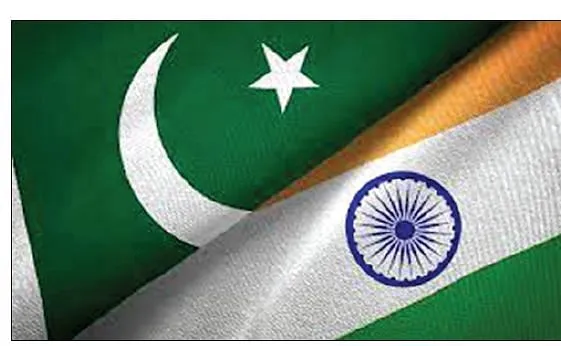Given the turbulent times in Pakistan, the question who will be the next army chief has become extraordinarily important because of the continuity, or the changes, that this change will bring with it.
Some may argue that this is a familiar part of Pakistani way of doing things, in which the army chief holds larger than life role and is also seen as a de facto policy maker on domestic and foreign issues, the counter-argument is that the situation this time is different.
In normal circumstances, the current army chief Gen. Qamar Javed Bajwa would have got an extension in November when his extended term expires or he could have handpicked someone from the army commanders to succeed him; of course, as they say, in consultation with the government.
The times have changed. Gen. Bajwa and his confidants have been dragged into the political controversies, to the extent that the politicians have started questioning the army’s top brass and its role in the internal politics of the country.
Imran Khan, who believes that divinity has granted him the sole right to rule Pakistan, however, is unforgiving while reflecting on the role of the army.
He, as is clear from his speeches at the largely attended “ jalsas” or rallies, has not bought the concept of the state institution – the army – being neutral. He wanted the army to stand by him when he was being ousted as Prime Minister through a vote of no-confidence motion in the National Assembly early last month.
Why, because he was a victim of the foreign backed conspiracy, therefore, it was the duty of the institution to support him. Day in and day out, he continues to demonise the army, despite stern warnings by the army not to drag its name in politics, that the politicians are playing in Pakistan at the moment.
The leading partner in the coalition government in Pakistan, PML-N vice president and Information and Broadcasting Minister Maryam Nawaz, too has been critical of the role of the army.
Peshawar Corps Commander Lt. Gen. Faiz Hameed, who earlier served as the all-powerful ISI chief, is on her target. She has accused him of being the hands “that throttled the opponents of Imran Khan.
Again, the ISPR warned that politicians should desist from making inappropriate remarks against the concerned ranking general in Pakistan army.
This political tussle, not only between Imran Khan and the fragmented coalition in Pakistan, is making matters really complex in the choice of the successor of the current army chief.
It is also heralding a story that dust will not settle down even after the new army chief is named. In the given political fragility in the neighbouring country, it is difficult to see the things moving in a particular direction – anything can happen between now and November.
So, the current turbulent waves sweeping across Pakistan , have made the things look uncertain.
During his tenure so far, Gen. Bajwa made certain very bold statements, and these should be appreciated not only by way of the choice of words, and the content that gave a context in practical terms. The February 25, 2021, reiteration of the November 26, 2003 ceasefire on the Line of Control came about on the watch of Gen. Bajwa.
It could not have been an unilateral effort, though it also is a well-established fact that there were friendly countries like UAE that nudged India and Pakistan to rediscover the virtues of peace on the borderline between two parts of Jammu and Kashmir.
This was a momentous decision by the two armies, the importance of which is now visible with the border populations on either side of the dividing line enjoying fruits of peace.
In less than a month after the February 2021 ceasefire agreement, speaking at Islamabad Security Dialogue, Gen. Bajwa while referring to the Indo-Pak relations did call for the resolution of Kashmir for better ties between Delhi and Islamabad, had made a super-significant statement;
”However , we feel that it is time to bury the past and move forward .” This bury the past and move forward statement could not be translated on the ground because of the flip-flop of the Imran Khan government, which one day wanted trade with India, and the next day succumbed to the hawks and derailed the whole process.
For India, it will be of critical importance whether Pakistan gets a new army chief who is willing to bury the past and move forward. From Indian point of view, the burying of the past should mean that Pakistan stops all its activities that tend to bleed India and start a fresh chapter in forging peace with Delhi.
Rawalpindi will have to give up its old approach of using terrorism as a tool to achieve its foreign policy objectives. This message should have dawned on Pakistan and its army after what it is witnessing.
The ugly developments in Afghanistan, the country which it thought would play to its tune has become a major headache.
Terrorism is a bad policy. That acknowledgement would mean in reality moving forward. It all depends as to who the new army chief in Pakistan will be and how he would like to draft a new chapter. India has reasons to watch.
Disclaimer: The views and opinions expressed in this article are the personal opinions of the author.
The facts, analysis, assumptions and perspective appearing in the article do not reflect the views of GK.







